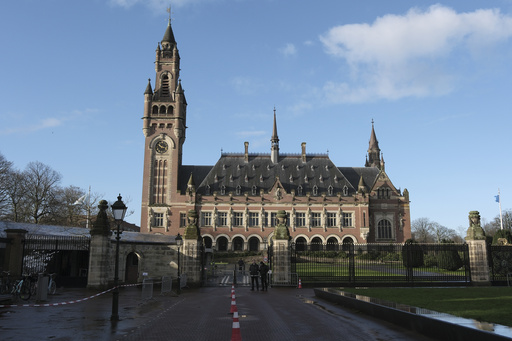The International Court of Justice in The Hague is set to announce a nonbinding advisory opinion on Friday concerning the legality of Israel’s occupation of territories that the Palestinians seek for a state, addressing a 57-year conflict. The decision may hold more weight in shaping international perceptions than in influencing Israel’s policies regarding the occupied lands.
The backdrop for this hearing is Israel’s recent extensive military campaign in Gaza, a response to attacks by Hamas in southern Israel. Concurrently, another case at the International Court of Justice involves a South African claim asserting that Israel’s actions in Gaza amount to genocide, an allegation strongly refuted by Israel.
Israel seized control of the West Bank, east Jerusalem, and the Gaza Strip during the 1967 Mideast war. The Palestinians aspire to establish an independent state encompassing all three areas. While Israel regards the West Bank as disputed territory for negotiation, it has annexed east Jerusalem and maintained control over Gaza since withdrawing in 2005, following Hamas’s rise to power in 2007. The international community generally views these territories as occupied.
During previous hearings, Palestinian representatives accused Israel of apartheid and urged the court to declare Israel’s occupation of Palestinian lands illegal for any chance of a two-state solution. Israel opted not to physically attend the hearings but provided written statements challenging the court’s impartiality and emphasizing its duty to safeguard its citizens.
Erwin van Veen, a senior researcher, highlighted the potential impact of a ruling against Israel’s policies, noting that although it may not alter Israel’s stance immediately, it could further isolate Israel on a legal front internationally. Additionally, such a judgment could bolster movements advocating against Israel, potentially increasing recognition of a Palestinian state by more countries.
The International Court of Justice has previously adjudicated on Israeli policies, including ruling twenty years ago that the West Bank separation barrier violated international law. Israel perceived these proceedings as politically motivated. The United Nations General Assembly’s recent vote to seek an advisory opinion from the court on Israel’s occupation was met with strong Israeli opposition.
Israel has significantly expanded its settlement presence, with over 100 settlements and a settler population exceeding 500,000 in the West Bank, alongside the annexation of east Jerusalem. The international community deems these settlements illegal or as hindrances to peace, obstructing Palestinian statehood aspirations.
The current Israeli government, led by Prime Minister Benjamin Netanyahu, holds a strong pro-settlement stance, with officials actively advancing settlement expansions and annexations. Recent approvals for land seizures, notably in the Jordan Valley, underscore ongoing efforts to solidify Israeli control in the West Bank, despite international disapproval.


